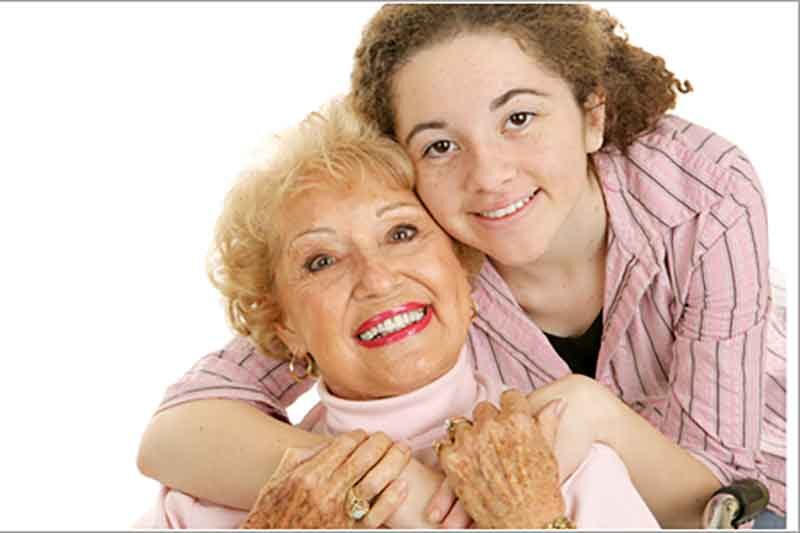Traditional Care Arrangement
Care in the home provided by a spouse or a child is the most common form of long term care in this country. About 73% of all long term care is provided in the home environment typically by family caregivers who receive no compensation for their labor.
The supervision of care or hands-on care from informal caregivers is limited to activities that don’t require a skilled background. Lifting, bathing, dressing, diapering, toileting and helping with walking can be a challenge to family caregivers because they don’t have the proper tools or are not trained in this area. Or the children of elderly care recipients may have difficulty dealing with cleaning messy bottoms or bathing their parents. Another problem may be handling errant behavior from dementia or depression.
Because of this, some caregivers bring in paid providers to help with lifting, walking, bathing, incontinence, toileting, dressing, and supervision.
Another home care arrangement is for family members, who are not living close by or who are employed fulltime, to become coordinators of care and to offer only limited, personal, hands-on care. These people might hire a care manager to act on their behalf.
Home care is almost always provided in the home of the recipient or the home of a family member or friend. Home care may under certain circumstances be offered in other settings such as group homes or independent retirement communities. Below are some of the activities provided by or supervised by family caregivers.
- Help with walking, lifting and bathing
- Help with using the bathroom and with incontinence
- Providing pain management
- Preventing unsafe behavior and preventing wandering
- Providing comfort and assurance or arranging for professional counseling
- Feeding
- Answering the phone
- Making arrangements for therapy, meeting medical needs and doctors’ appointments
- Providing meals
- Maintaining the household
- Shopping and running errands
- Providing transportation
- Administering medications
- Managing money and paying bills
- Doing the laundry
- Attending to personal hygiene and personal grooming
- Writing letters or notes
- Making repairs to the home, maintaining a yard and removing snow
Communal Arrangements
In large urban areas where neighboring families have lived together in an apartment complex and grown old together, there is a possibility for residents in the complex to band together and watch out for each other. This might also include limited caregiving services for neighbors. But it more likely would include helping neighbors with such things as light housekeeping, shopping, companionship, medication reminders and transportation.
Another arrangement becoming popular in Europe is for the elderly to share an apartment or home together and provide for each other’s needs. In Europe, there are actually agencies that bring together interested elderly parties who desire to share living arrangements. We’re not aware of these services in the United States, but the trend will probably be to provide similar living arrangements here. There are currently all kinds of agencies providing roommate sharing service around the country so it is only a matter of time before some of these services start specializing in bringing together elderly people who can provide support for each other.
Currently, the only way we are aware of elderly people coming together to share a home or apartment is through classified ads. Daily reading of the newspaper or online ads will probably yield a number of offers from people desiring a roommate who can also provide some care services for each other.
At some point, this is something we will all face. King Law encourages you to consult with an estate planning attorney before this time arrives. Doing so ensures you and your family can be both financially and physically prepared for this need. To schedule an appointment with an estate planning attorney at King Law, call 888-748-5464 (KING). We look forward to helping you plan now so that this doesn’t have to be a stress for you and your loved ones in the future.


